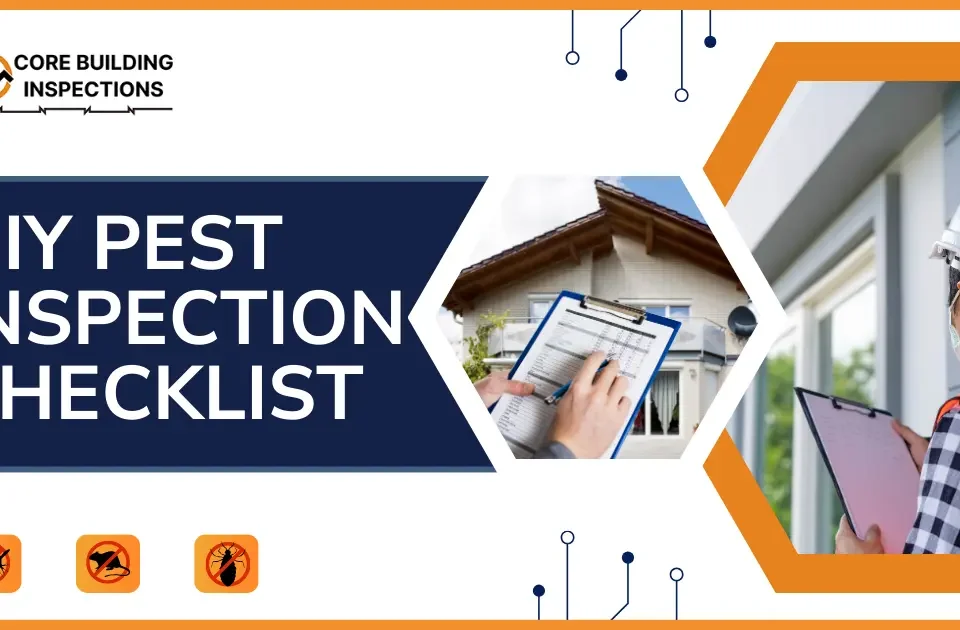The Benefits of Regular Property Inspections

Comprehensive DIY Pest Inspection Checklist for Homeowners
October 25, 2023
The Comprehensive Guide to Termite Inspection: Protecting Your Home from Silent Invaders
December 13, 2023When it comes to owning or managing a property, whether it’s a residential home, commercial space, or an investment property, regular property inspections are a crucial aspect of maintaining its value, safety, and overall condition. Many property owners underestimate the importance of consistent inspections, often leading to unexpected issues and costly repairs down the road. In this comprehensive guide, we will delve deep into the myriad benefits of consistent property reviews, helping you understand why they are a vital component of property management.
What Are Property Inspections?
Before we dive into the benefits, let’s start by defining what property inspections entail. Property inspections are systematic evaluations of a property’s condition, covering both its interior and exterior. These evaluations can be conducted by property owners, landlords, tenants, or professional inspectors. The primary goal is to identify any existing or potential issues and assess the property’s overall state.
Ensuring Tenant Safety
One of the most important aspects of regular property inspections is ensuring tenant safety. Landlords and property managers have a legal and ethical obligation to provide a safe living or working environment for their tenants. Regular inspections help identify safety hazards, such as faulty wiring, broken handrails, or mold growth, which could lead to accidents or health problems.
Preventative Maintenance
Preventative maintenance is a cornerstone of effective property management. By conducting regular inspections, property owners can catch minor issues before they escalate into major problems. For instance, fixing a small roof leak early can prevent extensive water damage, saving thousands of dollars in repair costs. We’ll explore various examples of preventative maintenance in this chapter.
Preserving Property Value
Your property is an investment, and its value is tied to its condition. Neglecting regular inspections can lead to a decrease in property value. In this section, we’ll discuss how maintaining your property’s value through inspections can have long-term financial benefits, whether you plan to sell, rent, or keep the property for the foreseeable future.

Legal Compliance
Many regions have specific legal requirements for property inspections. Failing to comply with these regulations can result in fines or legal complications. This chapter will guide you through the importance of staying up-to-date with local laws and how regular inspections can help you remain in compliance.
Building Positive Tenant-Landlord Relationships
Strong tenant-landlord relationships are built on trust and effective communication. Routune property inspections provide an opportunity for open dialogue between both parties. We’ll explore how a well-executed inspection process can foster trust, address tenant concerns, and lead to increased tenant satisfaction.
Identifying Unauthorized Activities
Unwanted activities such as subletting, illegal businesses, or unauthorized pets can significantly impact property safety and value. Regular inspections help identify and address these issues promptly. This chapter discusses the importance of detecting unauthorized activities and how to handle them.
Energy Efficiency and Sustainability
In today’s environmentally conscious world, energy efficiency and sustainability are more important than ever. Property inspections can help identify areas for improvement, such as upgrading insulation, windows, or appliances, leading to reduced energy consumption and lower utility bills.
Assessing Wear and Tear
All properties experience wear and tear over time. Inspections can help distinguish between normal wear and tear and tenant-induced damage. Understanding the difference is crucial for fair security deposit deductions and the overall maintenance of your property.
Enhancing Property Aesthetics
First impressions matter, whether you’re attracting new tenants, buyers, or customers to a commercial space. In this chapter, we’ll discuss how regular inspections can lead to improved property aesthetics, which, in turn, can positively impact your property’s appeal and marketability.
Peace of Mind for Property Owners
Routine property assessments provide peace of mind to property owners, knowing that their investment is being well-maintained. We’ll delve into the psychological benefits of inspections, including reduced stress and better sleep at night.
Conducting a Successful Property Inspection
To reap the benefits of regular property inspections, you must conduct them effectively. This chapter offers practical tips and guidelines for a successful inspection process, including preparation, communication, and documentation.

Leveraging Technology for Inspections
Modern technology has revolutionized property inspections. We’ll explore the advantages of using digital tools, apps, and software to streamline the inspection process, enhance accuracy, and simplify report generation.
Mistakes in the inspection process can negate the benefits. In this section, we’ll discuss common errors to avoid, such as insufficient communication, inadequate documentation, or neglecting tenant privacy rights.
Conclusion
In conclusion, regular property inspections are an indispensable aspect of property ownership and management. Whether you’re a landlord, property manager, or a homeowner, the benefits are numerous and substantial. From ensuring tenant safety and preserving property value to enhancing aesthetics and maintaining legal compliance, property inspections offer a wide range of advantages that no property owner can afford to overlook.
By understanding the importance of consistent property reviews and implementing them as part of your property management routine, you can ensure the long-term success and sustainability of your investment. Don’t wait until a small issue becomes a costly problem; start reaping the benefits of property inspections today.




